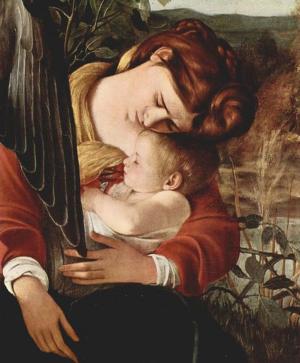The Laird of Norlaw: A Scottish Story
Nonfiction, Religion & Spirituality, New Age, History, Fiction & Literature| Author: | Margaret Oliphant Wilson Oliphant | ISBN: | 9781465614520 |
| Publisher: | Library of Alexandria | Publication: | March 8, 2015 |
| Imprint: | Language: | English |
| Author: | Margaret Oliphant Wilson Oliphant |
| ISBN: | 9781465614520 |
| Publisher: | Library of Alexandria |
| Publication: | March 8, 2015 |
| Imprint: | |
| Language: | English |
The house of Norlaw stands upon the slope of a low hill, under shelter of the three mystic Eildons, and not very far from that little ancient town which, in the language of the author of “Waverley,” is called Kennaquhair. A low, peaceable, fertile slope, bearing trees to its top-most height, and corn on its shoulders, with a little river running by its base, which manages, after many circuits, to wind its way into Tweed. The house, which is built low upon the hill, is two stories in front, but, owing to the unequal level, only one behind. The garden is all at the back, where the ground is sheltered, but in front, the green, natural surface of the hill descends softly to the water without any thing to break its verdure. There are clumps of trees on each side, straying as nature planted them, but nothing adorns the sloping lawn, which is not called a lawn, nor used for any purposes of ornament by the household of Norlaw. Close by, at the right hand of this homely house, stands an extraordinary foil to its serenity and peacefulness. The old castle of Norlaw, gaunt and bare, and windowless, not a towered and battlemented pile, but a straight, square, savage mass of masonry, with windows pierced high up in its walls in even rows, like a prison, and the gray stone-work below, as high under the first range of windows as the roof of the modern house, rising up blank, like a rock, without the slightest break or opening. To see this strange old ruin, in the very heart of the peaceful country, without a feature of nature to correspond with its sullen strength, nor a circumstance to suggest the times and the danger which made that necessary, is the strangest thing in the world; all the more that the ground has no special capacities for defense, and that the castle is not a picturesque baronial accumulation of turrets and battlements, but a big, austere, fortified dwelling-house, which modern engineering could make an end of in half a day. It showed, however, if it did nothing better, that the Livingstones were knights and gentlemen, in the day when the Border was an unquiet habitation—and for this, if for nothing else, was held in no little honor by the yeoman Livingstone, direct descendant of the Sir Rodericks and Sir Anthonys, who farmed the remains of his paternal property, and dwelt in the modern house of Norlaw.
The house of Norlaw stands upon the slope of a low hill, under shelter of the three mystic Eildons, and not very far from that little ancient town which, in the language of the author of “Waverley,” is called Kennaquhair. A low, peaceable, fertile slope, bearing trees to its top-most height, and corn on its shoulders, with a little river running by its base, which manages, after many circuits, to wind its way into Tweed. The house, which is built low upon the hill, is two stories in front, but, owing to the unequal level, only one behind. The garden is all at the back, where the ground is sheltered, but in front, the green, natural surface of the hill descends softly to the water without any thing to break its verdure. There are clumps of trees on each side, straying as nature planted them, but nothing adorns the sloping lawn, which is not called a lawn, nor used for any purposes of ornament by the household of Norlaw. Close by, at the right hand of this homely house, stands an extraordinary foil to its serenity and peacefulness. The old castle of Norlaw, gaunt and bare, and windowless, not a towered and battlemented pile, but a straight, square, savage mass of masonry, with windows pierced high up in its walls in even rows, like a prison, and the gray stone-work below, as high under the first range of windows as the roof of the modern house, rising up blank, like a rock, without the slightest break or opening. To see this strange old ruin, in the very heart of the peaceful country, without a feature of nature to correspond with its sullen strength, nor a circumstance to suggest the times and the danger which made that necessary, is the strangest thing in the world; all the more that the ground has no special capacities for defense, and that the castle is not a picturesque baronial accumulation of turrets and battlements, but a big, austere, fortified dwelling-house, which modern engineering could make an end of in half a day. It showed, however, if it did nothing better, that the Livingstones were knights and gentlemen, in the day when the Border was an unquiet habitation—and for this, if for nothing else, was held in no little honor by the yeoman Livingstone, direct descendant of the Sir Rodericks and Sir Anthonys, who farmed the remains of his paternal property, and dwelt in the modern house of Norlaw.















